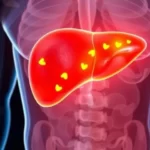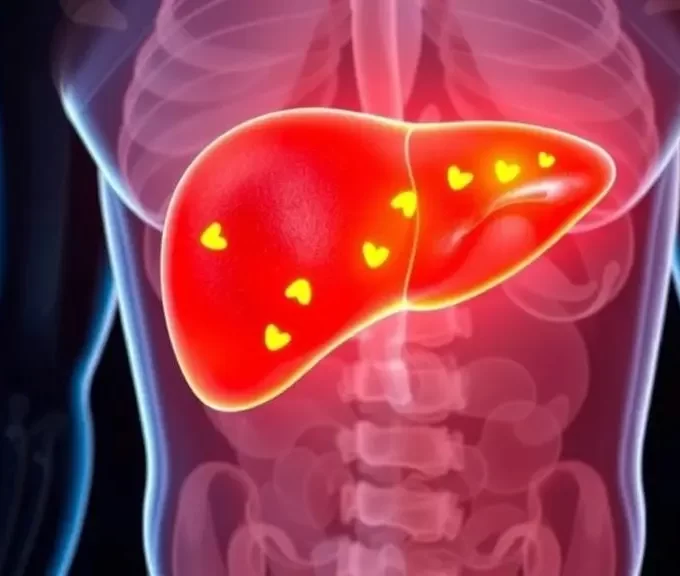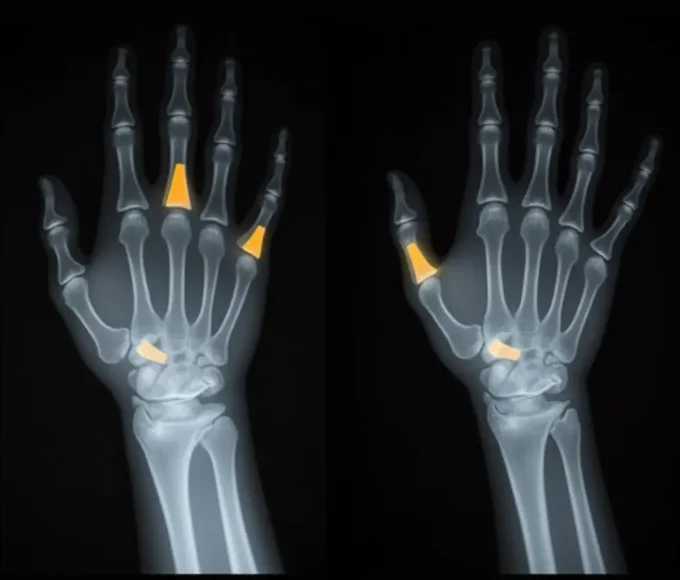Lungs cancer remains one of the deadliest and most misunderstood diseases globally. While often associated with smoking, this malignancy affects many non-smokers as well, and its symptoms are frequently mistaken for benign respiratory issues. For those searching for clarity on what lung cancer is, how it manifests, and what both conventional and alternative therapies like homeopathy can offer, this guide brings together the critical details you need to know.
What Is Lungs Cancer?
Lungs cancer is a condition characterized by the uncontrolled growth of abnormal cells in one or both lungs. These cells do not function like healthy lung tissue; instead, they form tumors that interfere with the lung’s ability to supply oxygen to the body. There are two primary types:
- Non-small cell lung cancer (NSCLC) is the most common form, making up about 85% of cases.
- Small cell lung cancer (SCLC) is less common but tends to spread more rapidly.
Early detection is crucial; however, many patients are diagnosed only after the disease has progressed.
Recognizing the Symptoms of Lungs Cancer Early
Symptoms of lung cancer often resemble those of less serious illnesses, which is why early signs are frequently overlooked. The most telling symptoms include:
- A persistent cough that doesn’t go away or worsens.
- Coughing up blood (hemoptysis), even in small amounts.
- Chest pain that is constant and worsens with deep breathing or coughing.
- Shortness of breath and wheezing.
- Unexplained weight loss and chronic fatigue.
- Frequent respiratory infections, such as pneumonia or bronchitis.
Patients may initially attribute their symptoms to a lingering cold, asthma, or smoking. However, when these issues persist or escalate, immediate evaluation is warranted. In many cases, these subtle signs are the first whispers of something more serious developing in the lungs.
Common Causes and Risk Factors
While smoking is the leading cause of lungs cancer, it’s not the only one. Numerous environmental, genetic, and occupational risks contribute to the disease:
- Tobacco smoke accounts for roughly 85% of lung cancer cases.
- Radon gas exposure, often from poorly ventilated homes or workplaces.
- Asbestos and other industrial pollutants.
- Family history of lung cancer or other malignancies.
- Air pollution in urban environments.
Even individuals with no history of smoking may develop lungs cancer due to these compounding factors. Genetic predisposition plays a growing role in medical research, shedding light on why some non-smokers still face a high risk.
Medical Treatments: What Science Offers Today
The standard treatment for lungs cancer varies based on the cancer type, size, location, and stage at diagnosis. Among the most common medical interventions are:
- Surgical removal of tumors when detected early.
- Chemotherapy which uses drugs to kill cancer cells or stop their growth.
- Radiation therapy targets specific cancerous areas.
- Immunotherapy stimulates the immune system to attack cancer cells.
- Targeted therapies are designed to disrupt specific genetic mutations in cancer cells.
Each treatment has unique side effects and success rates, often requiring personalized combinations for optimal outcomes.
The Role of Homeopathy in Lungs Cancer Support
While conventional treatments aim to eliminate or suppress cancer cells, homeopathy offers an individualized, holistic approach to managing the symptoms and improving the overall well-being of the patient. Based on centuries-old principles and a documented materia medica, homeopathy is recognized for supporting the body’s innate healing response, particularly in chronic diseases such as cancer.
How Homeopathy Works
Homeopathy operates on the “law of similars” that a substance causing symptoms in a healthy person can be used to treat similar symptoms in illness when prepared in a diluted, potentized form. For lungs cancer, the focus is not just on the tumor but on the individual’s constitution, emotional state, and overall vitality.
It’s important to emphasize that homeopathy does not replace mainstream cancer treatment but complements it. Patients often turn to homeopathy for symptom relief, improved energy, reduced side effects of chemotherapy, and enhanced quality of life.
Classical Homeopathic Remedies for Lungs Cancer Symptoms
Drawing on authoritative texts like Murphy’s and Clarke’s Materia Medica, the following remedies have been historically indicated for managing the symptoms commonly seen in patients with lung cancer. They are chosen not by diagnosis alone, but based on the complete picture of the patient’s experience:
Acalypha indica (Indian Nettle)
This remedy is noted for violent morning coughs, followed by bright red blood expectoration, which shifts to darker clots in the evening. It is often recommended for tubercular constitutions with progressive weakness and emaciation.
Aranea diadema (Papal Cross Spider)
Particularly useful in debilitated individuals, it addresses hemoptysis (the coughing up of bright red blood), dry, irritated coughs, and heaviness in the limbs. A curious symptom is relief from movement and fresh air, and strange, electrical-like shocks in the body.
Arsenicum iodatum (Iodide of Arsenic)
Ideal for lungs cancer with tubercular roots, this remedy is chosen when there is severe emaciation, burning in the chest, and asthmatic breathing with a hacking cough. It supports blood and glandular balance in cases of profound, chronic illness.
Bromium (Bromine)
Bromium’s effects center on the respiratory tract, especially in patients who feel like their lungs are coated with smoke. There’s often a dry cough, burning in the chest, and profound weakness with nosebleeds.
Bryonia (Wild Hops)
Selected for patients with dry, painful coughs and stabbing chest pain. The need to take deep breaths and expectoration of rust-colored mucus are strong indicators. It is often used in the treatment of pleurisy, pneumonia, and lung-related pain.
Chelidonium majus (Greater Celandine)
Recommended in hemoptysis, pneumonia, and painful chest conditions. Patients feel as though air cannot pass through the larynx, with tight pressure in the chest on breathing deeply.
Conium maculatum (Poison Hemlock)
Used in chronic cough with oppressed breathing, especially when pain and decay in the sternum are present. Breathing worsens on lying down or taking a deep breath.
Crotalus horridus (Rattlesnake)
Chosen for cough with bloody sputum and a weakened constitution. Patients may exhibit labored breathing, bleeding tendencies, and a sense of collapse.
Euphorbium officinarum (Gum Euphorbium)
Often used when dry, hollow coughing and chest pain dominate the symptom picture, especially when lying down at night. There may be a peculiar sticking sensation as if one lung lobe were adhered to the chest.
Methylene blue
This rare but powerful remedy is effective in treating epithelioma and cancerous ulceration, including pleurisy and blood-streaked coughs. The bleeding is often bright and sudden, with labored breathing.
Phosphorus
Phosphorus is a constitutional remedy for those with slow, destructive metabolism. Symptoms include tightness across the chest, dry, racking cough, and recurrent hemorrhages. It supports lung vitality in degenerative illness.
Sulphuricum acidum (Sulphuric Acid)
This is given when there’s rapid respiration, weakness, and bloody expectoration, often with vomiting. It is used mainly when bleeding occurs from multiple orifices, such as in advanced cancer stages.
Is Homeopathy Enough for Lungs Cancer?
While homeopathy offers significant relief and systemic support, it is not a standalone cure for lungs cancer. It must be viewed as part of an integrative care model, working alongside oncologists and pulmonologists. When used correctly, it helps reduce chemotherapy side effects, enhances lung function, and improves emotional health, especially in late-stage illnesses.
Living with Lungs Cancer: Holistic Support Tips
Managing lung cancer goes beyond medication. Here’s what complements both medical and homeopathic approaches:
- A nutritious, anti-inflammatory diet to support the immune response.
- Gentle breathing exercises like pranayama to expand lung capacity.
- Clean air environments, away from smoke and pollutants.
- Emotional counseling, meditation, and support groups.
- Regular follow-ups with both oncologists and certified homeopaths.
When to Seek Immediate Medical Attention
If you experience sudden breathlessness, new or worsening chest pain, or rapid bleeding from the mouth, go to the emergency room immediately. Lungs cancer can escalate quickly, and homeopathy should never delay urgent care.
Conclusion
Understanding lung cancer in all its complexity, from its silent early symptoms to its diverse treatment landscape, empowers patients to take charge of their health. While mainstream oncology is vital for survival, homeopathy offers a meaningful path to relief, resilience, and comfort, especially when conventional options are limited or exhausting.
Whether you’re newly diagnosed or caring for a loved one, consider a holistic, patient-centered approach that blends the best of modern science and classical homeopathy. Your breath is life, and every effort to protect it is worth making.
“So, what’s my final advice? Please don’t view homeopathy as a magic cure for lung cancer. From my clinical experience, I can tell you that it’s a powerful, safe, and effective way to support your body’s healing journey, reduce the side effects of conventional treatment, and improve your overall quality of life. By working with a qualified homeopath and your oncologist, you can create an integrative care plan that gives you the best of both worlds. Your health is a journey, and homeopathy can be a compassionate and powerful partner on that path.”
FAQ
Can lung cancer be cured?
Some early-stage lung cancers are curable with surgery, chemo, or radiation. Homeopathy may help manage symptoms, but it is not a cure for the underlying condition.
How long can you live with lung cancer?
Survival rates depend on the type and stage of the cancer. Homeopathic remedies may help alleviate symptoms and enhance the quality of life during treatment.
What are the first signs of lung cancer?
A chronic cough, chest pain, breathlessness, or coughing up blood are common early signs.
How does lung cancer affect daily life?
It can cause fatigue, breathing issues, and emotional distress. Homeopathy may offer support for both physical and mental symptoms.
Medically Reviewed by Dr. Muhammad Usman
References
World Health Organization (WHO). Lung Cancer Fact Sheet. https://www.who.int/news-room/fact-sheets/detail/cancer
Centers for Disease Control and Prevention (CDC). What Are the Risk Factors for Lung Cancer? https://www.cdc.gov/cancer/lung/basic_info/risk_factors.htm
National Cancer Institute (NCI). Lung Cancer Treatment (PDQ®)–Patient Version. https://www.cancer.gov/types/lung/patient
American Cancer Society. Lung Cancer. https://www.cancer.org/cancer/lung-cancer.html
Boericke, W. Pocket Manual of Homeopathic Materia Medica. B. Jain Publishers.
Clarke, J.H. A Dictionary of Practical Materia Medica. Homeopathic Medical Classics.
Murphy, R. Lotus Materia Medica. Hahnemann Academy of North America.
Allen, H.C. Keynotes and Characteristics with Comparisons of Some of the Leading Remedies of the Materia Medica.











